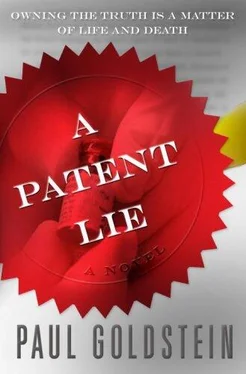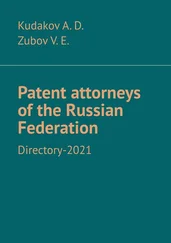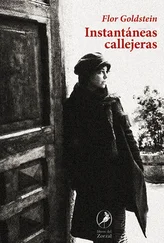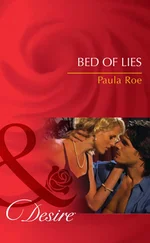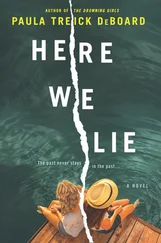Paul Goldstein - A Patent Lie
Здесь есть возможность читать онлайн «Paul Goldstein - A Patent Lie» весь текст электронной книги совершенно бесплатно (целиком полную версию без сокращений). В некоторых случаях можно слушать аудио, скачать через торрент в формате fb2 и присутствует краткое содержание. Жанр: Криминальный детектив, на английском языке. Описание произведения, (предисловие) а так же отзывы посетителей доступны на портале библиотеки ЛибКат.
- Название:A Patent Lie
- Автор:
- Жанр:
- Год:неизвестен
- ISBN:нет данных
- Рейтинг книги:3 / 5. Голосов: 1
-
Избранное:Добавить в избранное
- Отзывы:
-
Ваша оценка:
- 60
- 1
- 2
- 3
- 4
- 5
A Patent Lie: краткое содержание, описание и аннотация
Предлагаем к чтению аннотацию, описание, краткое содержание или предисловие (зависит от того, что написал сам автор книги «A Patent Lie»). Если вы не нашли необходимую информацию о книге — напишите в комментариях, мы постараемся отыскать её.
A Patent Lie — читать онлайн бесплатно полную книгу (весь текст) целиком
Ниже представлен текст книги, разбитый по страницам. Система сохранения места последней прочитанной страницы, позволяет с удобством читать онлайн бесплатно книгу «A Patent Lie», без необходимости каждый раз заново искать на чём Вы остановились. Поставьте закладку, и сможете в любой момент перейти на страницу, на которой закончили чтение.
Интервал:
Закладка:
“Well, counselors,” she said, “it looks like our jury is intact. Somewhat smaller, but intact.” She rose. “Before you go, the marshals tell me there are TV cameras and who knows what else all over the plaza. After we finish in there,” she nodded toward the courtroom, “I want you to leave by the basement entrance in the back. Emil knows the way. There may be reporters there, too, but if either of you even nods to one of them, I'll have your license.”
The din in the courtroom quieted when Seeley and Thorpe came through the paneled back door but then immediately resumed. The six remaining jurors filed in, taking their previous seats, the two empty chairs a demonstration to the gallery of the narrow precipice on which the trial now perched.
Judge Farnsworth came in quickly and before she could touch her gavel, the noise abruptly abated. Her chair squeaked as she turned to the jury. “We have become better acquainted over the past hour or so,” she said, “and I am grateful for that. I am confident that you can perform your duties in this case free from external influence.” The jurors, all but the kid, looked at one another, congratulating themselves. They were survivors.
“I could order that you be sequestered in a downtown hotel to ensure the integrity of your deliberations, but with the weekend coming up, and my confidence in your probity, I have decided not to do so.” She paused. “I just wanted you to know the complete faith that I have in you.”
She swiveled back to the center. “Mr. Seeley, I believe you have a closing argument.”
When circumstances force a lawyer to argue against his client's ostensible best interest-Seeley that the AV/AS patent was invalid; Thorpe, that it was valid-the less said, the better, and the short time left for closing argument was a blessing to both lawyers. Following the notes that he had drafted from Palmieri's outline, Seeley evenly balanced his witnesses against Thorpe's, emphasizing only slightly the evidence on validity; the case for validity was stronger, he was saying, but only modestly so. If Barnum, who was still missing, read the transcript, Seeley would explain that he did not want to overstate their case to the jury. Of his theory of the case, the story that he had carefully wrought of the out-of-town bully who stole the local boy's lunch, Seeley said nothing. He finished with three minutes left in his allotted time.
Thorpe's closing statement vacillated, too, but, perhaps chastened by Odum's speculations in the Chronicle, the old lawyer didn't once suggest that a reasonable juror might consider the patent to be valid. Like Seeley, and as if circling a bomb that might explode, Thorpe made no reference to Steinhardt.
While Thorpe addressed the jury, Seeley observed Judge Farnsworth. She looked tired and, from the lines across her brow, worried. Once, when she looked away from the jurors to survey the courtroom, her eyes met Seeley's and, for the briefest moment, an uncomfortable intimacy passed between them. Farnsworth was a talented lawyer, and if she hadn't believed Seeley when he came to her chambers with his tale of collusion, or later when Thorpe put on his witnesses, she believed him now. Her eyes in that moment said, Forgive me, but this is my jury, what is left of it. I am going to get a verdict and there will not be a mistrial. Which is why her own closing comment to the jurors was no surprise.
“This has been a difficult trial,” the judge said. She rose and walked to the jury side of the bench. Resting her hands on the wooden molding, she leaned over the edge, as she had with the lawyers at sidebar. “But you have been admirable jurors, all of you-admirable in your steadfastness and in your continued attention. I think you all deserve the afternoon off. That will give you the weekend to catch your breath and return refreshed on Monday. You will remember what we discussed about news coverage in chambers and here in open court. I will instruct you on the applicable law at eight thirty Monday morning after which this case will become your complete responsibility.”
At 11:20 a.m., she adjourned for the day.
TWENTY-THREE
For Seeley, the hardest part of a trial was the waiting. He turned down an offer to spend the weekend with Palmieri and his partner at their cabin in Sonoma. Lily was going to be working at the lab until late Saturday night, but invited him to come to Half Moon Bay on Sunday. He filled the rest of Saturday aimlessly walking through surprisingly empty San Francisco neighborhoods and visiting art museums. As a boy in Buffalo, he had found consolation, even meaning, in the city's single art museum, but now the prints and paintings on the walls only left him feeling restless and on edge. At the peak of his practice in New York, he would fill the vacuum at the end of a major trial with preparations for the next one. But no big trial awaited him.
On Sunday, Lily had prepared a picnic for the beach, and when Seeley objected that it might be unwise for them to be seen together-if he saw any reporters outside the town house in Cypress Cove he would have just driven by-she insisted that the gray sky and strong winds at the shore would keep all but the hardiest picnickers away.
As Lily promised, the beach was almost empty, and the steep dunes offered fine shelter for a lunch of roast chicken, French bread, and green salad, with fresh lemonade from a thermos. Surfboarders in their black wet suits looked like water sprites against the horizon, and Seeley envied them the patience with which, straddling their boards, they waited hours, it seemed, for the right wave.
Seeley took off his shoes and rolled up his pants at the water's edge. The firm sand made him want to run, not walk. He and Lily talked about movies, art, places they had visited, but not about Odum's story. It was as if they had just completed a marathon and were too consumed by exhaustion to revisit the race. Still, Seeley's thoughts drifted back to the trial. If the jury voted that Vaxtek's patent was valid, the company's public relations people would immediately crown Steinhardt as a savior and brand Lily as a thief. Any hope that she might have for a future in science in the United States, or anywhere else, would dissolve.
Lily said, “My friends tell me I'm pretty poor company when I'm waiting for a result in the lab that's completely out of my control.”
Distracted by the water and wind, as well as thoughts of the trial, it took Seeley a moment to catch her meaning. “I'm sorry,” he said. “I can't get my mind off the jury. I'm sure I'm lousy company.”
“Let's just say you're a little preoccupied.” She squeezed his hand. “We can get together after the trial's over. I'll make dim sum this time.”
On Monday morning, the Golden Gate Bridge was lost in fog and the light falling onto Pearsall's desk-Seeley still thought of it as belonging to him-was a watery gray. He tossed a handful of telephone messages taken by the weekend operator into the wastebasket along with a note from Tina that his voice mailbox was filled to capacity. From the scraps of notes that he kept over the last two weeks, he methodically filled in the neat grids of Heilbrun, Hardy's time sheets, pausing once to consider a question of legal ethics that he had never faced before: Is it ethical to bill a client for time spent trying to destroy the client's case? The question stopped him for no more than a few seconds. Vaxtek had bought his time, not his moral choices.
Until Tina came into the office and switched on the light, Seeley didn't notice that he was working in the dark. She handed him two days of trial transcripts that a paralegal had marked with yellow tags where he or Palmieri made an objection at trial so that he could identify any overruled objections that might be the basis for an appeal. He didn't tell Tina, but it was just another necessary charade. There would be no appeal. If Vaxtek won, neither party would risk having the result overturned by a higher court, and if it lost they wouldn't risk having the result affirmed. Warshaw had been exaggerating when he said that he didn't mind risk, only competition. In his sandbox, there was no room for either.
Читать дальшеИнтервал:
Закладка:
Похожие книги на «A Patent Lie»
Представляем Вашему вниманию похожие книги на «A Patent Lie» списком для выбора. Мы отобрали схожую по названию и смыслу литературу в надежде предоставить читателям больше вариантов отыскать новые, интересные, ещё непрочитанные произведения.
Обсуждение, отзывы о книге «A Patent Lie» и просто собственные мнения читателей. Оставьте ваши комментарии, напишите, что Вы думаете о произведении, его смысле или главных героях. Укажите что конкретно понравилось, а что нет, и почему Вы так считаете.
